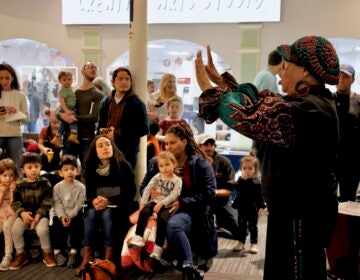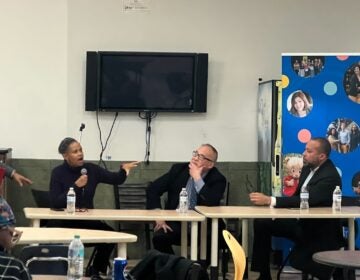On MLK Day, Dr. Ala Stanford calls on Biden to send National Guard to support vaccination efforts
“Bring them here to help us,” said Black Doctors COVID-19 Consortium founder Dr. Ala Stanford, speaking Monday at Girard College’s MLK Day of Service.
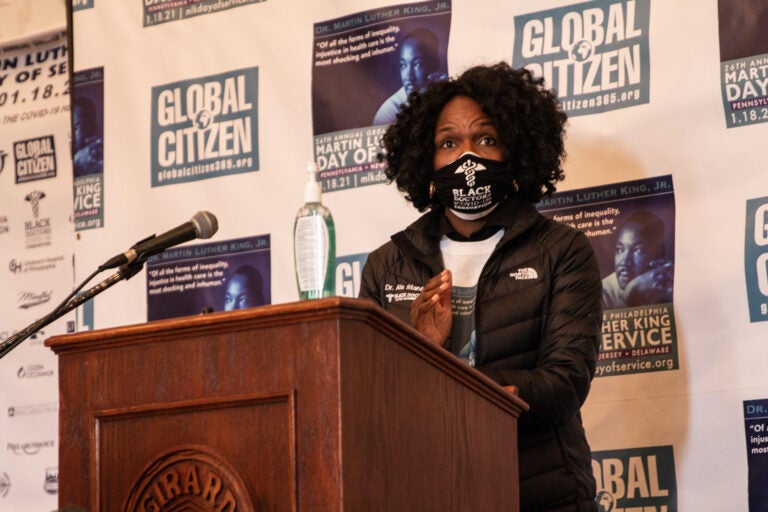
Dr. Ala Stanford kicks off free COVID-19 testing with the Black Doctors Consortium at Girard College for the Martin Luther King Jr. Day of Service. (Kimberly Paynter/WHYY)
Ask us about COVID-19: What questions do you have about the current surge?
In March of 1966, at a press conference ahead of his address to the Medical Committee for Human Rights in Chicago, Dr. Martin Luther King Jr. said that, “of all the forms of inequality, injustice in health is the most shocking and the most inhuman because it often results in physical death.”
Those health disparities were the focus of this year’s MLK Day of Service in Philadelphia.
The Black Doctors COVID-19 Consortium set up a testing site at Girard College, the annual host of the city’s day of service, to provide free COVID-19 tests. A long line of drivers had already formed as the morning’s speakers kicked things off.
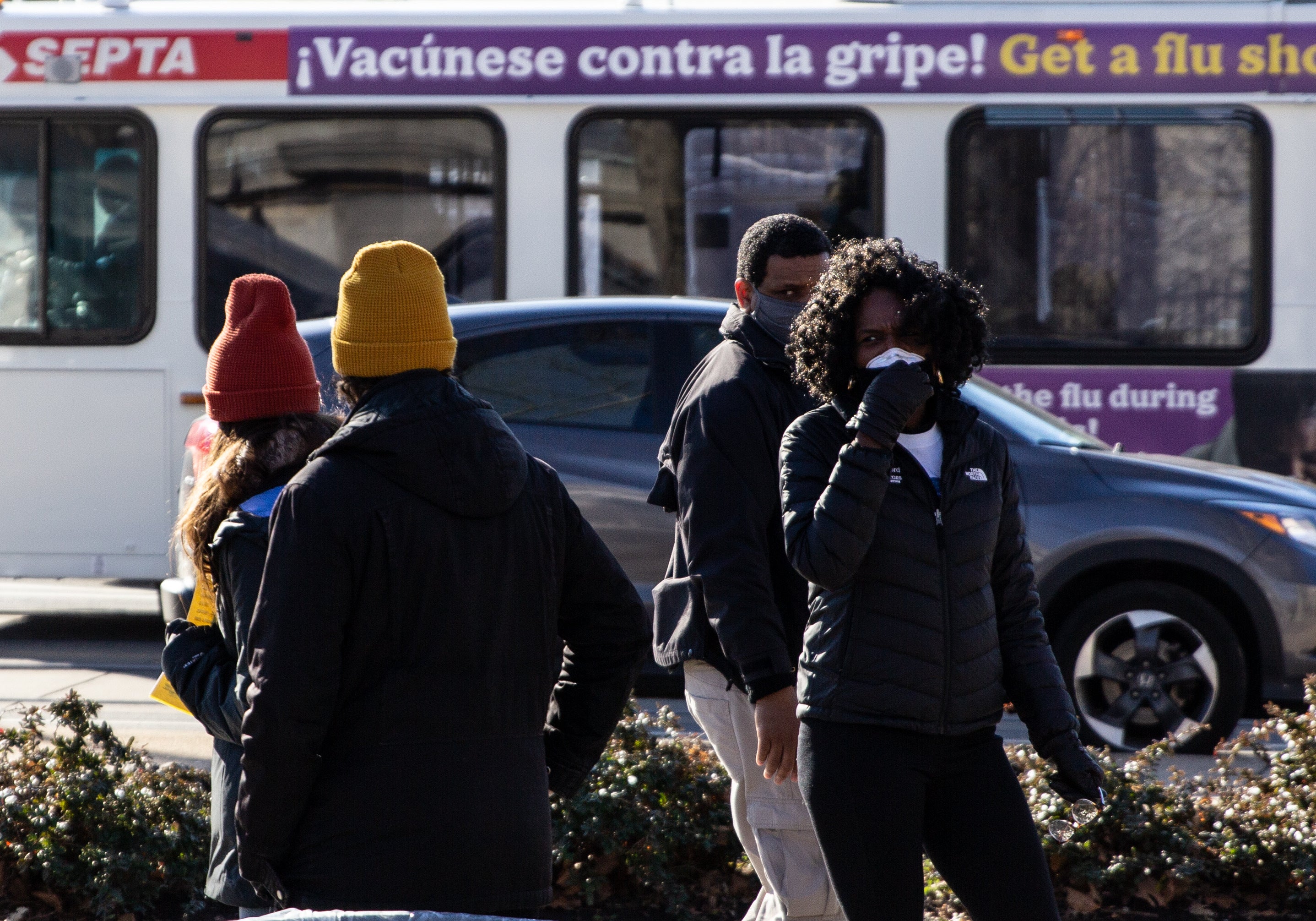
While Monday’s event offered testing, the group, over the weekend, began vaccinating people. The consortium’s founder, Dr. Ala Stanford, said that in one week, more than 8,000 people have registered to receive the vaccine from her, roughly 60% of whom are Black.
She said her group administered roughly 1,000 vaccines on Saturday and Sunday. Among the recipients were a woman who hoped to be vaccinated after her mother had died from COVID the night before; an HIV positive man who hoped to move his appointment up to accommodate his work schedule; people on oxygen and residents over 90.
Stanford dismissed the notion that Black people are, on the whole, more hesitant about the vaccine and instead said the real thing holding back the immunization effort is manpower.
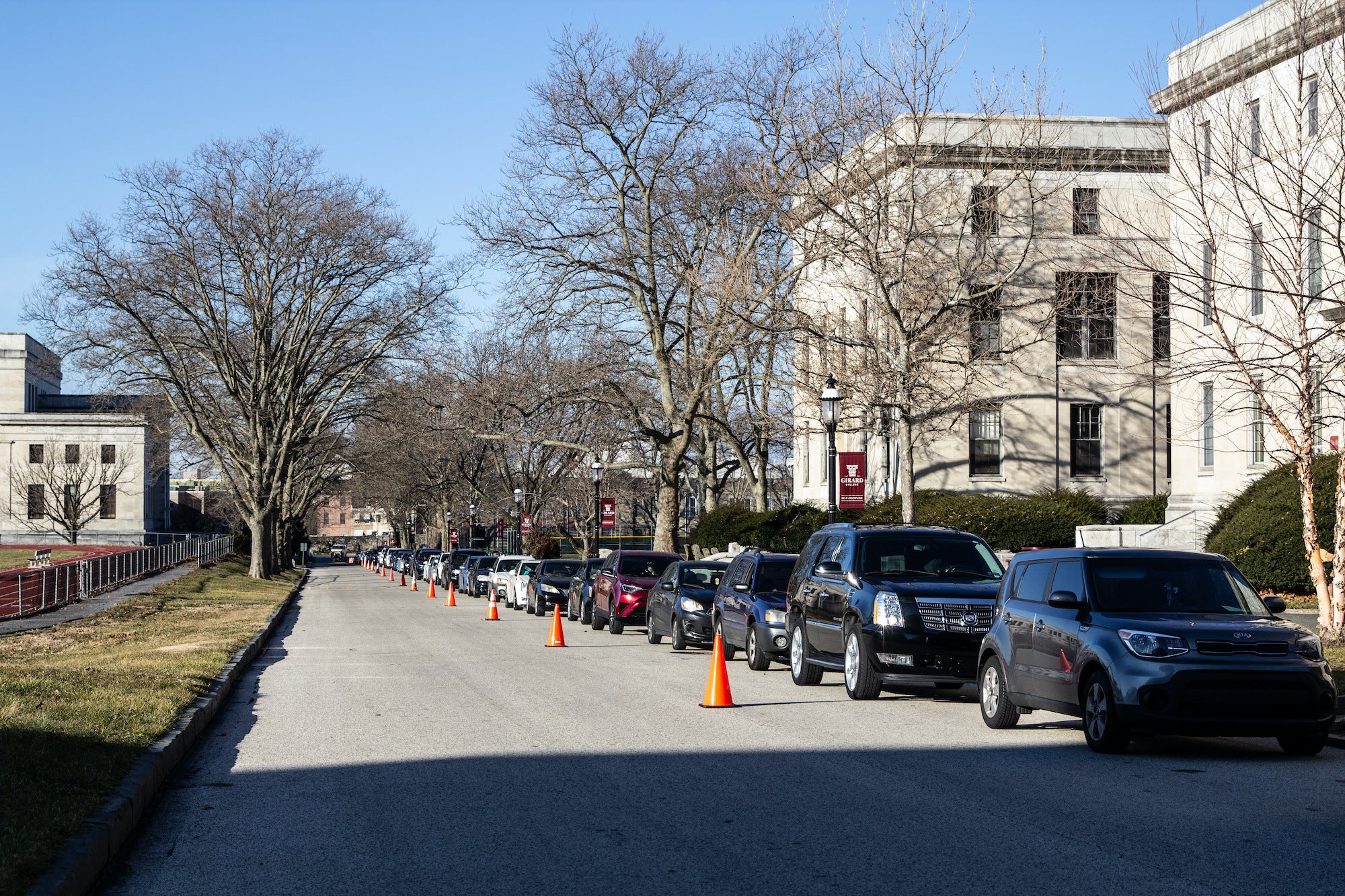
“That National Guard that President-elect Biden is talking about? Bring them here to help us,” said Stanford. “We have the relationships, people are ready. We just need more people.”
Stanford’s group began inoculating people who fall into phase 1B, which includes a range of essential workers and people with chronic conditions. That’s despite the fact that the city is still officially only authorizing providers to offer the vaccine to the 1A group, which comprises health care workers and long-term care residents.
Philadelphia Mayor Jim Kenney gave credit to Stanford and her group for recognizing and addressing the enormous disparity in health care access and outcomes for African Americans during the pandemic. In Philadelphia, Black people have died at a higher rate from the disease than any other group.
Kenney added that the pro-Trump rioters storming the Capitol, many of them wielding racist insignia, served as a reminder of just how fragile our democracy really is.
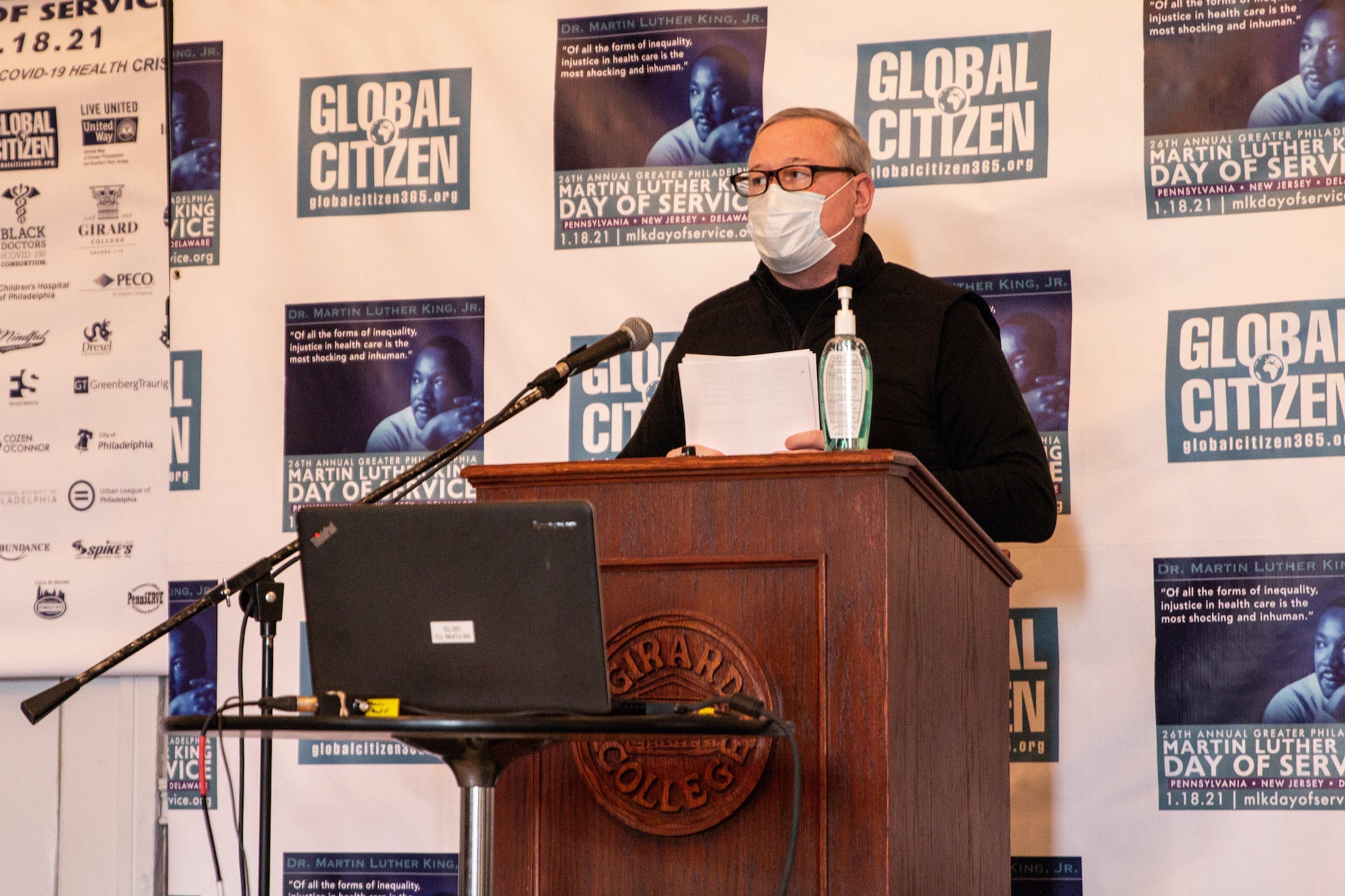
“I would never have anticipated having to call a member of Congress to make sure they’re OK in the Capitol,” said Kenney, describing having phoned local delegates Dwight Evans, Madeline Dean, and Mary Gay Scanlon during the Jan. 6 riot. “I’m serious, this is real, these people are crazy and they’re mean and we have to make sure we fight them back,” he said.
South Carolina Congressman James Clyburn, who came of age politically in the civil rights movement and remembers working with King, also made a virtual appearance Monday. He drew a parallel between today and the time King wrote his letter from a Birmingham Jail, describing both as inflection points in society.
“I’m hopeful that after we’ve seen what we’ve seen the last several days, as we go about the business of getting beyond the pandemic — the worst in over 100 years — that we will break our silence,” said Clyburn. “We cannot afford to consent to the things we are hearing and seeing by remaining silent.”

Get daily updates from WHYY News!
WHYY is your source for fact-based, in-depth journalism and information. As a nonprofit organization, we rely on financial support from readers like you. Please give today.


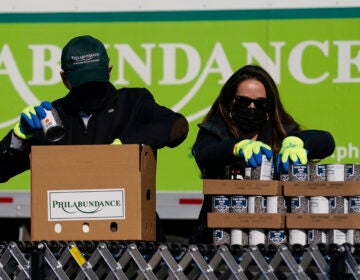
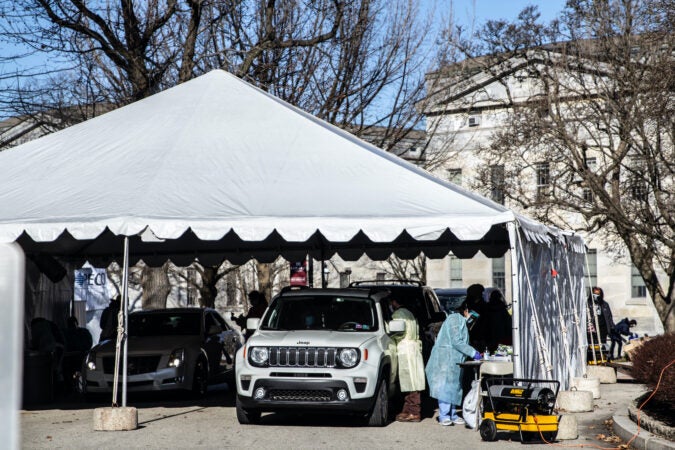
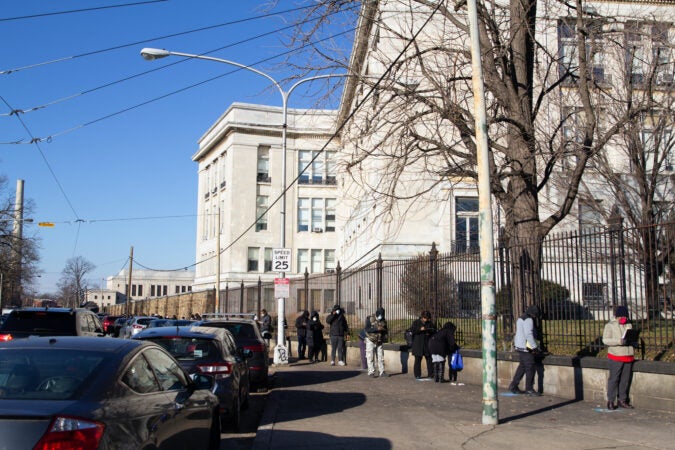
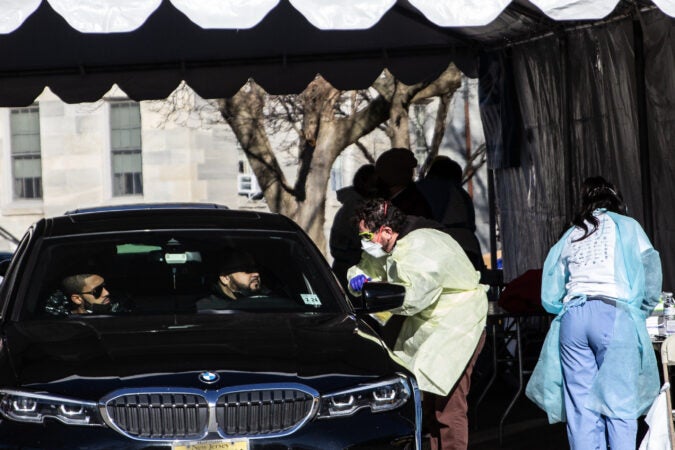
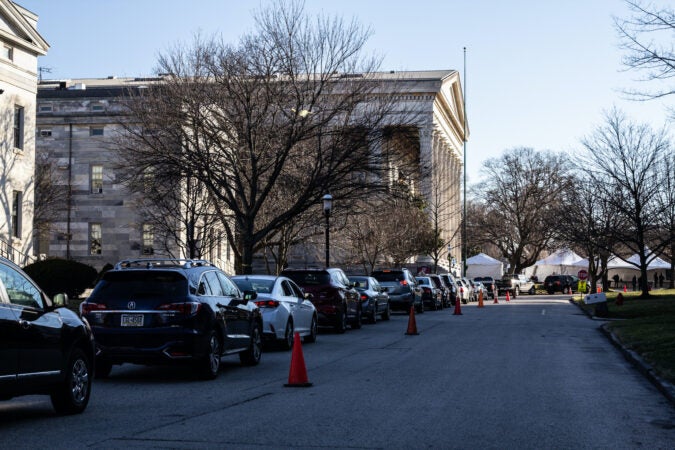

![CoronavirusPandemic_1024x512[1]](https://whyy.org/wp-content/uploads/2020/03/CoronavirusPandemic_1024x5121-300x150.jpg)
